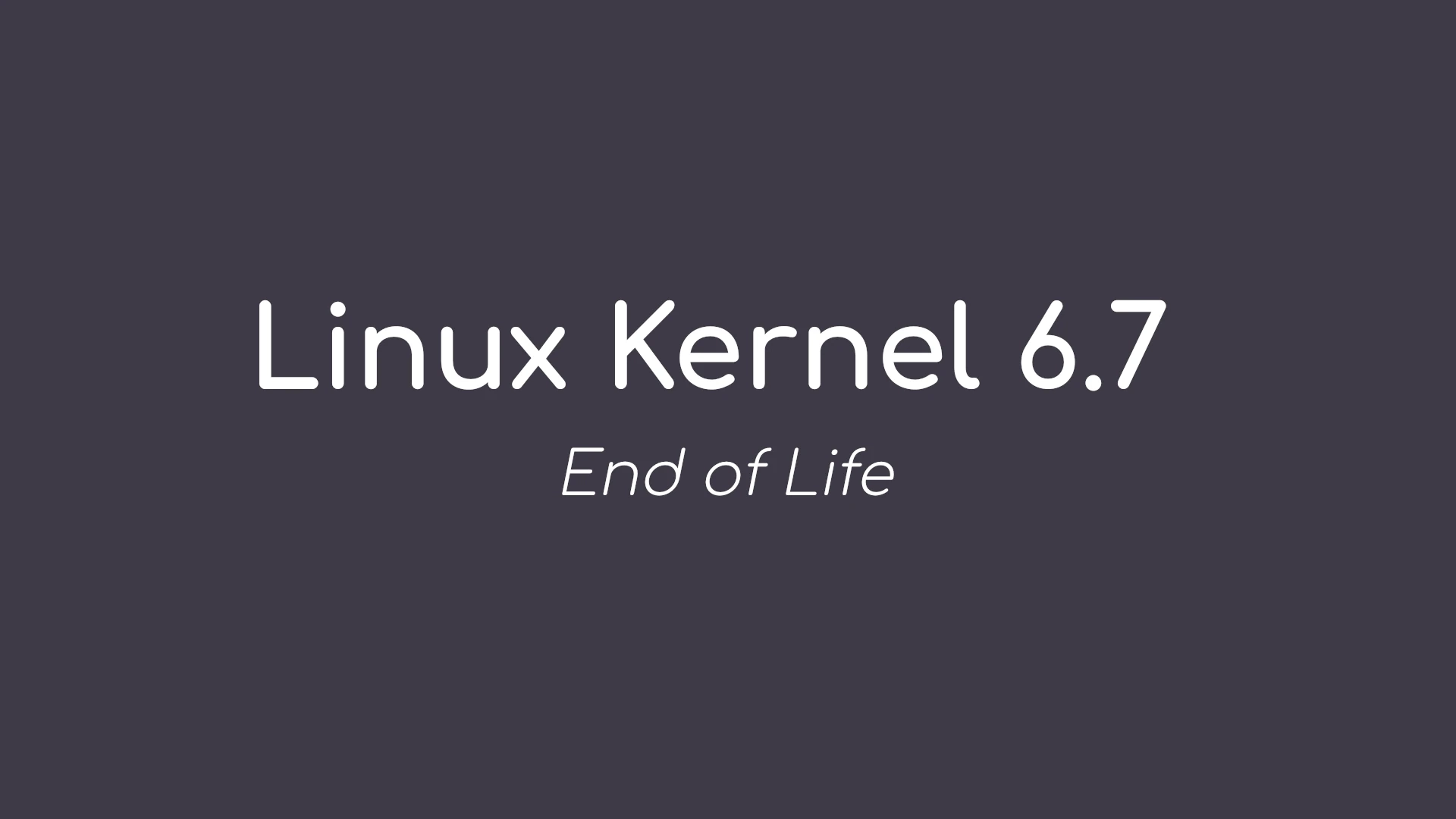Greg Kroah-Hartman, a well-known maintainer of the Linux kernel, officially declared today that the Linux 6.7 kernel series has reached its end of life (EOL). He encouraged users to make a prompt upgrade to the most recent Linux 6.8 kernel.
The Linux kernel 6.7 was launched by Linus Torvalds on January 7th, 2024. It came with intriguing features such as the bcachefs file system, a copy-on-write (COW) file system for Linux-based operating systems. The goal was to give a stiff competition to the contemporary features provided by the Btrfs and ZFS file systems.
The Linux 6.7 not only introduced support for NVIDIA’s GSP firmware in the Nouveau open-source graphics driver but also unveiled new features for the Btrfs file system. It brought improvements to the EXT4 file system, introduced a number of networking enhancements, and provided several new and updated drivers for improved hardware support.
The Linux 6.7 kernel series has had twelve maintenance updates and is now labeled as EOL (End of Life), suggesting it will no longer be provided with bug and security fixes. Hence, it is highly recommended for users who are on the Linux kernel 6.7 to switch to the Linux kernel 6.8 releases.
“Note, this is the LAST 6.7.y kernel to be released. This branch is now end-of-life. Please move to the 6.8.y branch at this point in time,” said Greg Kroah-Hartman in the mailing list announcement for Linux 6.7.12, which is the last maintenance update in the series.
Linux kernel 6.8 was released last month on March 10th, 2024, with new features like LAM (Linear Address Masking) virtualization support for KVM, a new Intel Xe DRM driver, fscrypt support for CephFS, a multi-size THP (Transparent Huge Pages) sysfs interface, and more.
Linux 6.8 is already powering various popular GNU/Linux distributions, such as Arch Linux and openSUSE Tumbleweed, and it will be the default kernel in the upcoming Fedora Linux 40 and Ubuntu 24.04 LTS releases.
Linux kernel 6.8 has been updated today to version 6.8.3, promising to be incorporated soon into the stable software repositories of favourite GNU/Linux distributions. Notably, Linux kernel 6.8.3 encompasses several changes with 4772 insertions and 2551 deletions across 481 altered files, making it a highly suggested update.
Nevertheless, it is worth mentioning that although Linux 6.8 introduces cutting-edge features, it is only going to be short-lived and supported merely for a few months. Therefore, if you are seeking long-term support for your kernel, the best course of action would be to switch over to one of the many LTS kernel series available, with Linux 6.6 LTS being the most recent that will be supported until December 2026.
Updated 9 hours ago
